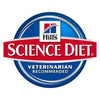
Top 5 Recalled Brands in the US. Are you feeding Hills, Purina, Royal Canin, Diamond (Kirkland) ?
, by cody Decker, 4 min reading time

, by cody Decker, 4 min reading time
When choosing pet food, it’s crucial to be aware of brands with troubling recall histories. Major brands like Smucker’s, Diamond, Hill’s, Nestlé Purina, and Mars Petcare have faced significant recalls due to issues like contamination and quality control. These recalls, often involving millions of pounds of food, highlight the risks associated with mass-produced products. Opting for fresh or raw pet foods, which typically have fewer recalls, can be a safer alternative. At Decker's, we prioritize high-quality, safe pet food options to ensure your pet gets the best nutrition
Why You Should Think Twice About Mass-Produced Pet Foods: A Look at Recalled Brands
When it comes to feeding our beloved pets, we want the best for them. However, not all pet foods are created equal. Some brands, particularly those mass-produced and widely available, have a troubling history of recalls that raises serious concerns about their quality and safety. Let’s delve into the recall history of some of the most frequently recalled pet food brands in the U.S. and why it’s crucial to be cautious.
The J.M. Smucker Company, which entered the pet food market in 2015 by acquiring Del Monte’s Big Heart Brands (including popular names like Meow Mix®, Milk-Bone®, and Kibbles ‘n Bits®), has experienced significant recall issues. By 2018, Smucker expanded further with the acquisition of Ainsworth Nutrition, known for the Rachael Ray™ Nutrish® brand. Since then, Smucker’s pet foods have been recalled in large quantities, with an estimated 92 million pounds of canned pet food affected. Such massive recalls highlight the potential risks associated with buying from brands with a history of quality control issues.
Diamond Pet Food has also faced a troubling number of recalls. In 2012 alone, Diamond issued multiple recalls due to salmonella contamination, affecting a staggering 24.8 million pounds of pet food. A second major recall in 2013 involved all batches produced in a specific plant, underscoring the severity of the contamination risk. These repeated issues raise questions about the brand’s commitment to maintaining rigorous safety standards.
Hill’s Pet Food has experienced several recalls over the years, totaling approximately 6.3 million pounds of pet food. In 2014, Hill’s recalled a small batch of dry dog food due to potential salmonella contamination. More notably, in 2019, the company recalled around 675,000 cases of canned dog food due to elevated vitamin D levels. Despite their reputation and widespread use, these recalls indicate that even well-known brands are not immune to significant quality control problems.
Nestlé Purina, a name familiar to many pet owners, has also faced numerous recalls, amounting to nearly 4.9 million pounds of pet food. Issues have ranged from contamination with salmonella to product mislabeling and even foreign object contamination. Notably, recalls in 2012 and 2016 involved significant quantities of food, and the recalls were sometimes classified as less severe than they might warrant. Such discrepancies in classification can be misleading and concerning for pet owners.
Mars Petcare, known for brands like PEDIGREE® and IAMS® and Royal Canin, has had its share of recalls, totaling about 1.8 million pounds of pet food. Recalls have included issues such as choking hazards and insufficient vitamin levels, with one major recall involving over 1.6 million cans of dog food. Despite the company’s extensive reach and influence, their recall history suggests that quality control remains a critical concern.
It’s important to note that the recalls mentioned above predominantly involve dry kibble and canned pet foods. The volume of recalled dry dog food alone highlights the significant risks associated with these mass-produced products. In contrast, fresh and raw pet foods, which are often less processed and more closely monitored, typically have far fewer recalls. For pet owners who are committed to providing the best nutrition for their pets, fresh and raw food options can be a safer and more nutritious alternative.
The high number of recalls associated with these mass-produced brands highlights a crucial issue: the scale and speed at which these companies operate can sometimes come at the expense of quality and safety. While these brands are often marketed as reliable and are frequently recommended by veterinarians, their recall histories suggest that they may not always deliver on these promises.
At Decker's, we believe that transparency and quality should come first. We offer a range of pet food brands that are committed to rigorous safety standards and high-quality ingredients. Our selection includes fresh and raw food options that are not only nutritious but also backed by a strong track record of safety. Don’t be swayed by marketing tactics or widespread recommendations—make informed decisions based on facts.
Visit us at Decker's for expert advice and trustworthy pet food options. Your pet deserves the best, and we’re here to help you find it.